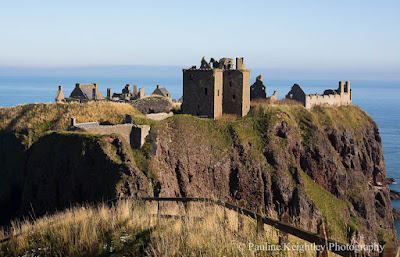Quebec often comes up, even the newly formed UK Supreme court comparing our ancient Scotland nation to the Canadian state.
If you look up ‘secession’ – it takes many forms – from quietly agreed separations or federal governance to fierce tribal warfare, for example in Africa. So following on from the keenness to compare Scotland to the state of Quebec, (rather than other small nations such as Iceland or Finland) Its interesting to note that after Quebec’s independence referendum, Canada agreed to more self determination for Quebec.
Unlike the British state or UK, which immediately turned to English votes for English laws and Brexit - and to restricting Scotland’s self determination even more. So the British state attempted to pull even tighter with muscular unionism! – leading to all the “stresses and strains” across the UK, and the calls of reform, which are all akin to a parent refusing to allow their fifteen year old to grow up!
Looking back to the calls for both Scotland’s and Ireland’s home rule before the great war 1914 – the British state across the 1900s became ever more centralised. This has held the UK back, no longer able to exploit its lost empire, most of the wealth has been held in the south east while the rest of the UK declines. Of course Scottish secession, as a threat to the British state, will be keenly on MI5s radar.
Nicola Sturgeon, was she too managerial? The SNP had large mandates, with 56 of the 59 Scottish MPs in 2015…why was this not enough – what more of a mandate is required? We really must wonder. Did she get bogged down in detail rather than seeing the bigger picture?
Journalist Ian MacWhirter wondered why the two biggest political figures of Scotland’s 25 years of devolution, have ended their political careers mired in police investigations – and that Scottish politics is far too intertwined with the Scottish justice system.
But surely the Big Debate across the UK is between a centralized state and a more federal one? If we compare to say Spain or other European nations, in Spain each state collects their own taxes. Quebec collects its own taxes and VAT, immigration policies, laws, trade etc. etc.
Independence is a journey – as Scotland already has it own law system, Parliament, central bank, civil servants – it is partly on its way. Scotland only has control of 20% of its welfare, expenditure and 40% of tax.
The happiest and most successful countries are those based on fairness of opportunities where private schools have been abolished and there’s not a two tier system – that is the small nation of Finland.
“Economic Growth”, the favourite slogan of Starmer’s Labour, is not the successful formula for a happy nation. Would federalism work here UK, with so much power centralised in Westminster? Probably not. The debate is therefore between – where does sovereignty lie – with Westminster or the people?
